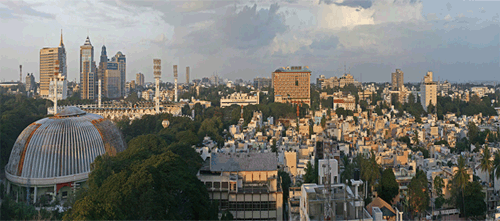Bangalore is a rapidly growing city and is known for its high-tech industries, rich cultural heritage, and vibrant lifestyle. With so many neighborhoods to choose from, it can be difficult to determine which one is the best fit for you. That’s why we’ve created this guide to help you find the perfect neighborhood in Bangalore based on different factors. In this blog, we will explore factors such as cost of living, safety and security, infrastructure and amenities, and more, to help you make an informed decision about the best neighborhood for you. We will also provide tips and recommendations to make your transition to Bangalore as smooth as possible.
Whether you’re a first-time visitor, an expat, or a local resident, our goal is to provide you with all the information you need to find the best neighborhood in Bangalore. So, whether you’re searching for a bustling city center, a quiet residential area, or something in between, this blog is the ultimate resource for finding your perfect neighborhood in Bangalore.
Table of Contents
Factors to consider when choosing a neighborhood
When choosing a neighborhood, there are several important factors to consider:
- Proximity to amenities: Consider the location of schools, shops, restaurants, parks, and public transportation. You want to choose a neighborhood that is conveniently located to the things you need on a daily basis.
- Safety: Research the crime rates in the area and speak to local residents about their experiences.
- Cost of living: Consider your budget and the cost of housing, utilities, and other expenses in the area.
- Demographics: Think about the age, income, and cultural makeup of the neighborhood and whether it aligns with your lifestyle.
- Noise levels: Consider the level of noise in the area, especially if you are looking for a quiet place to live.
- Access to outdoor spaces: If you enjoy spending time outdoors, consider the availability of parks, bike paths, and other outdoor recreational areas in the neighborhood.
- Future developments: Research planned or potential developments in the area, such as new construction projects or road improvements, to determine if they will positively or negatively impact the neighborhood.
- School district quality: If you have children or are planning to start a family, consider the quality of the local schools and their reputation in the community.
- Commute time: Consider the time and distance it will take you to get to work, school, or other daily destinations, and make sure you are comfortable with the commute.
- Local businesses and services: Consider the variety and quality of local businesses and services, including grocery stores, medical facilities, and entertainment options.
- Walkability: If you prefer to walk or bike instead of drive, look for a neighborhood with sidewalks, bike lanes, and a grid-like street pattern that allows for easy navigation.
- Community feel: Research the neighborhood’s community events and activities, such as block parties, community centers, and volunteer opportunities, to determine if the community is active and engaged.
- Future growth potential: Consider the potential for future growth and development in the area, including new homes, businesses, and infrastructure improvements.
- Environmental factors: Take into account the neighborhood’s exposure to natural elements, such as floods, hurricanes, or earthquakes, and how these may impact the area in the future.
- Parking availability: If you own a car, consider the availability of parking, especially if you live in an urban area with limited street parking.
- Public transportation: Consider the availability and quality of public transportation options, including buses, trains, and bike-sharing programs.
By considering these factors and researching your options, you can make an informed decision when choosing a neighborhood. Your choice will impact your daily life, so it’s important to take the time to find the right fit for you and your family.
Cost of living in Bangalore neighborhoods

The cost of living in Bangalore can vary widely depending on the neighborhood you choose. Here are some of the factors that can impact the cost of living in Bangalore’s neighborhoods:
- Location: Neighborhoods closer to the city center tend to be more expensive than those located on the outskirts.
- Type of housing: The cost of housing in Bangalore ranges from affordable apartments to luxury villas, with prices varying depending on the neighborhood, size, and amenities of the property.
- Availability of amenities: Neighborhoods with a high concentration of shopping, dining, and entertainment options tend to be more expensive than those with limited options.
- Quality of infrastructure: Neighborhoods with better roads, public transportation, and other infrastructure tend to have a higher cost of living.
- Safety and security: Neighborhoods with a lower crime rate and better security tend to have a higher cost of living.
To give you an idea of the cost of living in different neighborhoods in Bangalore, here are some rough estimates:
- Indiranagar: A one-bedroom apartment can cost anywhere from INR 20,000 to INR 60,000 per month, while a villa can cost upwards of INR 1 lakh per month.
- Whitefield: A one-bedroom apartment can cost anywhere from INR 15,000 to INR 40,000 per month, while a villa can cost upwards of INR 80,000 per month.
- Koramangala: A one-bedroom apartment can cost anywhere from INR 20,000 to INR 50,000 per month, while a villa can cost upwards of INR 1 lakh per month.
- Jayanagar: A one-bedroom apartment can cost anywhere from INR 10,000 to INR 30,000 per month, while a villa can cost upwards of INR 70,000 per month.
These are just rough estimates and the actual cost of living in each neighborhood will depend on various factors, including the size of your home, the availability of amenities, and the quality of infrastructure. To get a more accurate picture of the cost of living in different neighborhoods in Bangalore, it’s best to research and compare your options.
Safety and security in Bangalore neighborhoods

Safety and security are important considerations for expats and residents alike when choosing a neighborhood in Bangalore. Here are some factors to keep in mind:
- Crime rate: Neighborhoods with lower crime rates are generally considered to be safer. You can research crime statistics for different neighborhoods in Bangalore to get an idea of which areas are safer.
- Presence of law enforcement: Neighborhoods with a strong police presence tend to have a lower crime rate and provide a greater sense of security.
- Quality of infrastructure: Neighborhoods with well-lit streets, well-maintained roads, and other infrastructure tend to be safer and more secure.
- Community involvement: Neighborhoods with a strong sense of community and active neighborhood watch programs tend to be safer and more secure.
- Safety features in homes: Homes with security features such as burglar alarms, security cameras, and gated communities tend to be considered safer.
While no neighborhood in Bangalore is immune from crime, many areas in the city have a relatively low crime rate and strong police presence. To ensure your safety and security in Bangalore, it’s important to be vigilant and take precautions such as locking doors and windows, avoiding walking alone at night, and being aware of your surroundings. Additionally, it may be helpful to research and compare the safety and security of different neighborhoods in Bangalore before making a decision on where to live.
Infrastructure and amenities in Bangalore neighborhoods

Infrastructure and amenities are important factors to consider when choosing a neighborhood in Bangalore. Here are some of the key things to keep in mind:
- Transportation: Neighborhoods with convenient public transportation options, such as bus and metro services, are more accessible and offer greater connectivity to other parts of the city.
- Roads: Neighborhoods with well-maintained roads and good traffic flow tend to be more convenient for commuting and other daily activities.
- Healthcare: Neighborhoods with good Hospitals and medical facilities are essential for access to Healthcare services.
- Schools: Neighborhoods with good schools are important for families with children.
- Shopping and dining: Neighborhoods with a high concentration of shopping and dining options can provide greater convenience and a higher quality of life.
- Entertainment and recreation: Neighborhoods with parks, movie theaters, and other recreational options can offer a more enjoyable and fulfilling lifestyle.
When choosing a neighborhood in Bangalore, it’s important to research and compare the availability and quality of infrastructure and amenities in different areas to ensure that your needs and preferences are met. Additionally, it may be helpful to consider the proximity of different amenities to your home, as well as the ease of accessing them.
Conclusion: Finding the best neighborhood for you in Bangalore
Finding the best neighborhood in Bangalore can be a challenging task, but it is important to ensure that you are happy and comfortable in your new home. To find the best neighborhood for you, it is important to consider your lifestyle, budget, and personal preferences. Some key factors to consider include:
- Cost of living: Neighborhoods with a lower cost of living can be more affordable for those on a budget.
- Safety and security: Neighborhoods with a low crime rate and strong police presence are generally considered to be safer.
- Infrastructure and amenities: Neighborhoods with good transportation, roads, Healthcare, schools, shopping and dining, and entertainment options can provide greater convenience and a higher quality of life.
When considering different neighborhoods in Bangalore, it is also important to take into account the distance from your workplace, the proximity to friends and family, and the overall atmosphere and vibe of the neighborhood. By researching and comparing the various neighborhoods in Bangalore, you can find the best neighborhood that meets your needs and preferences.
Ultimately, choosing a neighborhood in Bangalore is a personal decision, and what may be perfect for one person may not be suitable for another. It is important to take the time to research and visit different neighborhoods before making a decision, and to trust your instincts when it comes to finding the best neighborhood for you.

